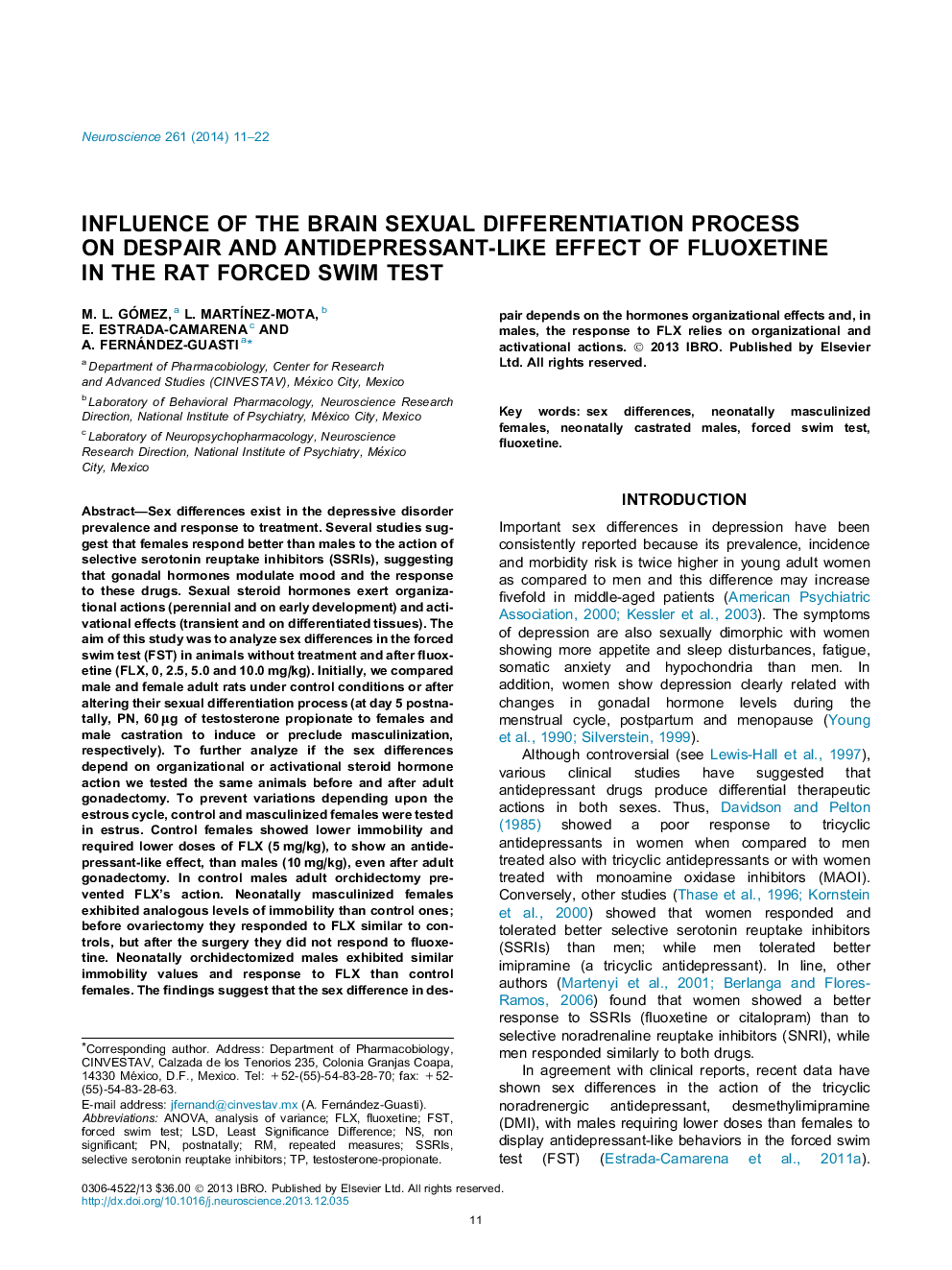| Article ID | Journal | Published Year | Pages | File Type |
|---|---|---|---|---|
| 6273920 | Neuroscience | 2014 | 12 Pages |
â¢Control females showed less immobility and needed lower fluoxetine doses than males.â¢In control males adult orchidectomy prevented fluoxetine's action.â¢Neonatal masculinized females exhibited similar levels of immobility than controls.â¢Ovariectomized neonatally masculinized females failed to respond to fluoxetine.â¢Neonatal orchidectomy produced a female immobility level and fluoxetine response.
Sex differences exist in the depressive disorder prevalence and response to treatment. Several studies suggest that females respond better than males to the action of selective serotonin reuptake inhibitors (SSRIs), suggesting that gonadal hormones modulate mood and the response to these drugs. Sexual steroid hormones exert organizational actions (perennial and on early development) and activational effects (transient and on differentiated tissues). The aim of this study was to analyze sex differences in the forced swim test (FST) in animals without treatment and after fluoxetine (FLX, 0, 2.5, 5.0 and 10.0 mg/kg). Initially, we compared male and female adult rats under control conditions or after altering their sexual differentiation process (at day 5 postnatally, PN, 60 μg of testosterone propionate to females and male castration to induce or preclude masculinization, respectively). To further analyze if the sex differences depend on organizational or activational steroid hormone action we tested the same animals before and after adult gonadectomy. To prevent variations depending upon the estrous cycle, control and masculinized females were tested in estrus. Control females showed lower immobility and required lower doses of FLX (5 mg/kg), to show an antidepressant-like effect, than males (10 mg/kg), even after adult gonadectomy. In control males adult orchidectomy prevented FLX's action. Neonatally masculinized females exhibited analogous levels of immobility than control ones; before ovariectomy they responded to FLX similar to controls, but after the surgery they did not respond to fluoxetine. Neonatally orchidectomized males exhibited similar immobility values and response to FLX than control females. The findings suggest that the sex difference in despair depends on the hormones organizational effects and, in males, the response to FLX relies on organizational and activational actions.
